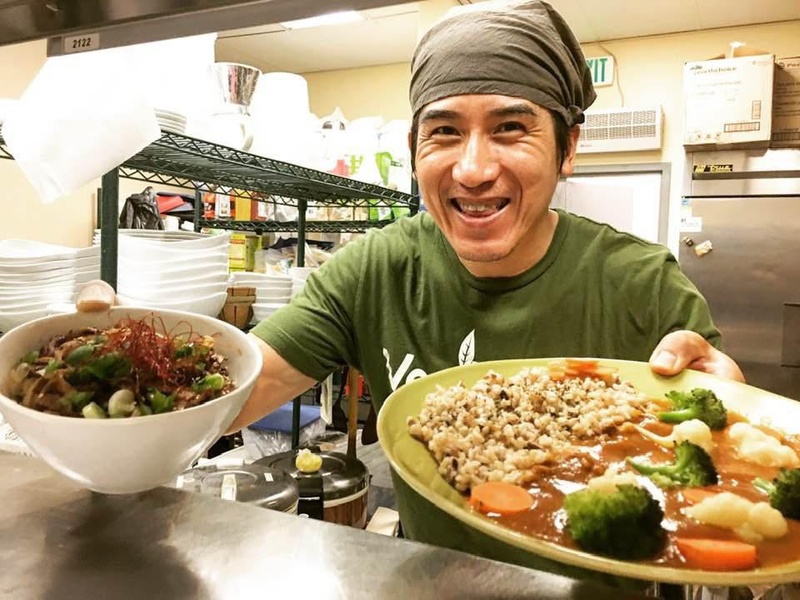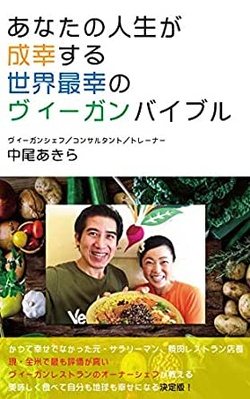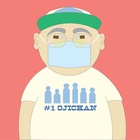"Just do the same thing as before"
Huntington Beach, Orange County. Vegan restaurant VegiLicious is located in a secluded corner of an inconspicuous shopping mall, quite far from the freeway. The restaurant's owner and chef, Akira Nakao, serves Japanese dishes such as curry, ramen, and Kobe yakiniku donburi. As it is a vegan restaurant, all the ingredients are naturally plant-based and organic. The healthy dishes, which Nakao himself makes with love, have earned a reputation, and despite the restaurant's less than favorable location, it has long been awarded five stars on foodie social media.
However, in March 2020, Orange County also went into lockdown due to the new coronavirus, and restaurants were forced to accept only takeout and delivery. However, looking at Facebook, VegiLicious seemed to be open every day with Nakao and his wife Atsuko, who was in charge of customer service. It said that even with the business restrictions imposed, there were months when sales exceeded the previous year's figures. What is the secret? In mid-December, I had the opportunity to talk to Nakao, who I had interviewed twice before, over the phone. At that time, Southern California had just entered a second strict lockdown, and business was again limited to takeout and delivery. First, when I asked Nakao if he had started doing anything new or special since March to survive, he replied, "We're just doing exactly the same things as before."
"We have been preparing and serving our entire menu every day to make our customers happy. Since March, some restaurants have temporarily closed, shortened their hours, or limited their menus. However, we have continued to open as before, with our regular menu and regular business hours. We also continue to post on social media every day. In addition, we send newsletters to the email addresses of 5,000 customers. We ask customers who dine at our restaurant to fill out a survey, and many customers enter their email addresses, so we create a list from those addresses. It certainly takes time to create a newsletter, but for a small restaurant like ours, it is essential to let customers know that we are still open for business, so we are putting our efforts into it."
"Thank you for opening the store" from a regular customer
Perhaps these "business as usual" efforts were successful, as sales, which had fallen by 60% in March 2020, recovered to a 30% decrease in May and returned to almost normal by July. Furthermore, in August, the company achieved its sales target set before COVID-19, and from September to November, it exceeded the previous year's sales.
"Our customers always thank us for keeping the shop open. We also opened on Thanksgiving day for the first time in our eight years in business. Because of the current situation, people tend to cook at home more often, and I thought it might be a hassle to make Thanksgiving food. So I opened the shop with the thought that I would be happy if even just a few people were happy. As a result, we had many more customers than we expected," Nakao said as he talked about his experiences with customers in a cheerful tone throughout the event.
However, a simple question came to mind: Doesn't he feel tired from being tossed around by government regulations that change back and forth, with eating and drinking inside restaurants being banned and outdoor seating being allowed? Nakao responded, "When outdoor eating and drinking was permitted, many establishments set up large tents, placed tables and chairs there, and even heaters. But we didn't have to go that far; we felt a sense of confidence that customers would come if we did what we could."
"I think times like these are a good opportunity to reconsider why we run a restaurant. We need to get back to the basics, and keep to our own principles, and provide food and service that pleases our customers. From now on, chefs without heart will have to leave this world. And unless we create genuine products, we will never survive."
The talent blossomed in America
Nakao was originally a wrestler who won the national championship many times in Japan. In the US, he worked as a manager at a yakiniku restaurant, but after incorporating more fish than meat and more vegetables than fish into his diet, he realized that vegan foods were the best way to improve his health. He left the yakiniku restaurant and started his own restaurant eight years ago. Even after eight years, his beliefs have not wavered one bit and seem to have become even firmer.
I asked Nakao what America, the country where he met vegans and opened his restaurant, gave him. "It allowed me to realize my potential all at once. I had a restaurant in Japan, but even if you try to do what you want, you get hammered down if you stand out. In America, there is an environment where you can demonstrate your abilities." As a fan of Nakao's vegan cuisine, I hope that he will overcome this difficult time and that more people will be able to taste his food. Finally, when I asked him if he would be open on Christmas and New Year's Day like he was on Thanksgiving, he replied, "Well, I'm Japanese. I think I'll just close on New Year's Day."
VegiLicious Website: www.vegilicious-us.com
© 2021 Keiko Fukuda








